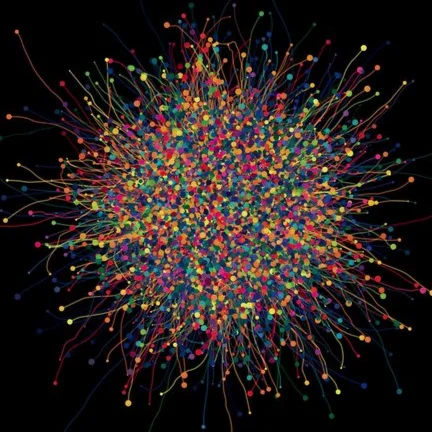I mostly teach quantitative methods for social scientists at both the undergraduate and graduate level, and am always interested in improving my teaching to encourage efficient learning and practical application of methods for both consumers and producers in their research. I was a Fellow in the Omicron Cohort in the Madison Teaching and Learning Excellence (MTLE) program at UW-Madison in 2019-2020.
Graduate students interested in prepping for the methods sequence, depending on differences in backgrounds, might find a few of the below options helpful, especially in the summer before starting the program.
Refresh or get familiar with the following subfields of mathematics (for a rough guide of key materials and concepts see the following mathematics review handout I’ve put together). Note textbook editions generally won’t matter throughout.
Calculus. Important aspects are derivatives, integration (optimization). Suggested texts are Stewart Calculus books.
Linear algebra. Important aspect is matrix notation. Suggested texts include Spence et al. “Elementary Linear Algebra” and Golub and Van Loan “Matrix Computations”.
Probability. Important aspects include random variables and expectations of random variables. Suggested texts include Ross' “A First Course in Probability.” For a nice probability cheat sheet you can also check out William Chen’s review.
Download, install, and conduct a few beginner’s exercises in the programming language R, and its more user friendly interface RStudio.
Wickham & Grolemund “R for Data Science”.
Matloff’s “The Art of R Programming”.
Familiarize yourself with LaTeX typesetting. At some point in your grad career it is likely you will encounter or need to write in LaTeX, so early familiarity with this typesetting system can help (resources abound online for this) though I recommend for starters:
Source: Seeing Theory, Brown University
Courses Taught
PS 948: Migration Politics
Graduate. What drives peoples to migrate and where? How does migration impact sender and host country economies? How do migrants and native populations interact --- socially, identity-wise and politically? What drives native attitudes towards immigrants? This course addresses the above and similar questions through coverage of basic theories and reviews of cutting-edge (recent) migration working papers and peer reviewed work. The course is organized by substantive topic area and emphasizes the use of research design, statistical techniques and causal identification to move beyond empirical associations and towards causal arguments about the causes and impacts of migration and migration policies.
Spring 2025 Syllabus.
PS 812: Intro to Statistical Analysis
Graduate. First course in graduate methods sequence. Statistical analysis is now an integral part of conducting and consuming research in the social sciences. This class serves as an introduction to the graduate quantitative methods sequence at UW Madison, Political Science. It focuses on foundational probability theory and builds up to linear regression and its application to causal inference. We will also be working on developing programming skills that play an important role in modern research.
Previous syllabi: Fall 2023.
PS 813: Multivariate Statistical Inference
Graduate. Second course in graduate methods sequence. We begin by picking up from PS 812 and studying the fundamental principles of statistical inference. Students will then learn a variety of basic cross-section regression models including linear regression model, structural equation and instrumental variables models; several models for panel data will also be covered. Unlike traditional courses on applied regression modeling, we will emphasize the connections between these methods and causal inference, which is a primary goal of social science research. In particular, this course will focus on clarifying the conditions under which estimates made using experimental and non-experimental data can be given a causal interpretation. To this end, we will cover a variety of designs and methods, including experiments, matching, regression, panel methods, difference-in-differences, instrumental variable estimation, regression discontinuity designs, and sensitivity analyses.
Previous syllabi: Spring 2023.
PS 919: Intro to Machine Learning
Graduate. Introductory course in Machine Learning, using R. This course serves as a graduate-level introduction to machine/statistical learning. It will cover some, but not all, common techniques to collect, analyze and utilize large and unstructured data for social science questions. The general goal of this course is to introduce students to modern machine learning techniques and provide the skills necessary to apply the methods widely.
Previous syllabi: Fall 2023.
PS 900: Models Experiments and Data (Graduate Methods Workshop)
PS 270: Political Numbers
Undergraduate course on political analysis.
Previous syllabi: Fall 2019.
Courses Taught at Harvard University
[Harvard] Gov 50: Data
The course introduces basic principles of statistical inference and programming skills necessary for data analysis and is primarily designed for undergraduate students in the social sciences. Students will learn the statistical and computational principles necessary to conduct basic statistical tests and regression analyses of empirical data. Students will be able to do so using the R programming language and present graphs and plots of their results and findings. More specifically, the course covers basic probability, univariate inference, linear regression and its applications in causal inference strategies.
[Harvard] Gov 2018: Introduction to Machine Learning
This course serves as a graduate-level introduction to machine/statistical learning for social scientists. It will cover some, but not all, common techniques to collect, analyze and utilize large and unstructured data for social science questions. The general goal of this course is to introduce students to modern machine learning techniques and provide the skills necessary to apply the methods widely. Note, this course does not utilize Python or Julia. All computation work is conducted in R.
Source: New York Times

